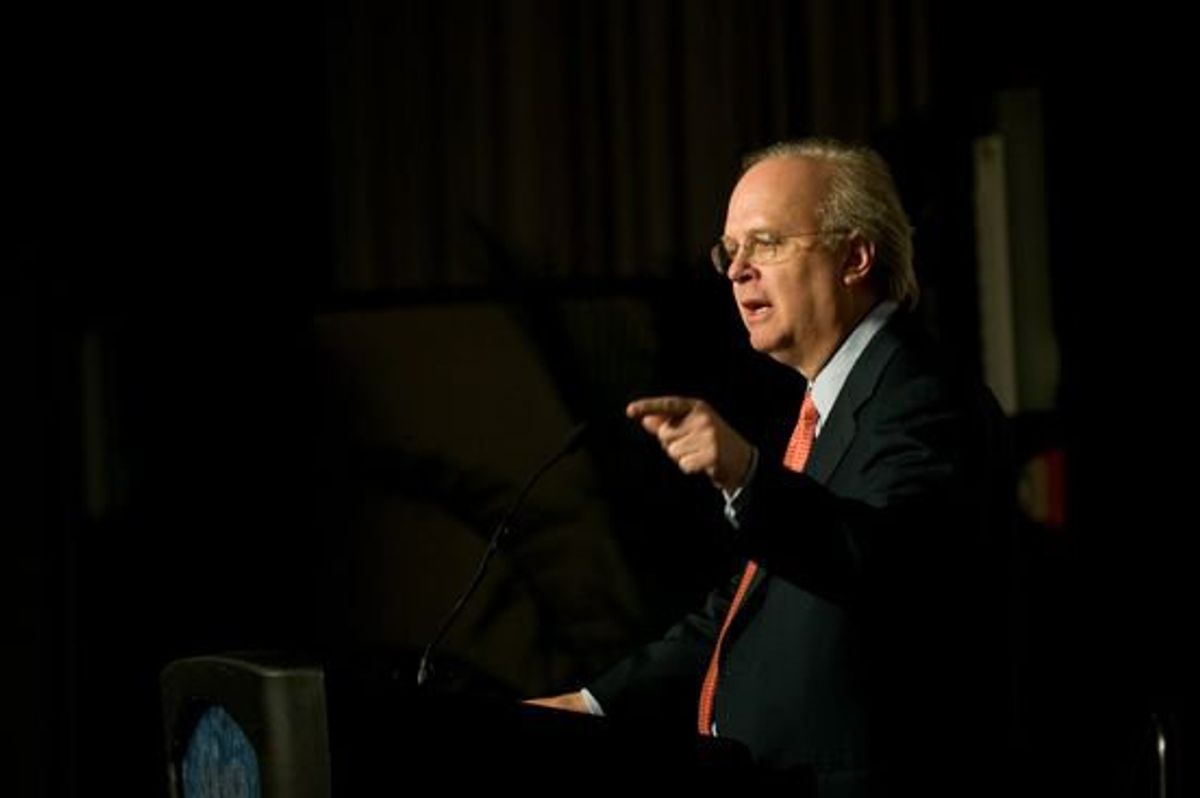In an Op-Ed in the Wall Street Journal, Karl Rove accused President Obama of pushing for a "civil war" within the Republican Party, and using the "fiscal cliff" negotiations to shore up his party's position for 2014.
Rove writes that Obama's positions on tax increases and additional stimulus spending are both "political" and "ideological. The president does want to expand government's size, cost and reach in order to, in his words, 'transform' America."
He continued that Obama is also hoping that by not backing down on tax increases, he can cause a rift in the Republican party:
He apparently believes that Republicans, in a weakened state and defending an unpopular position, might buckle on a central GOP tenet, opposition to any increase in marginal rates. That might kick off a Republican civil war, resulting in divisive party primaries in 2014 that leave the president's opposition even more weakened and produce more subpar candidates like this year's Republican Senate candidates in Indiana and Missouri.
"This brings us to Mr. Obama's real goal: having Democrats recapture the House in 2014 and once again stave off losses in the Senate," Rove writes.
Jon Chait at Daily Intel breaks down Rove's argument:
It’s certainly true that Republicans are undergoing some internal strife right now over the tax issue. Daniel Henninger, also on the Journal editorial page, mourns that the president is “dismantle[ing] their party by letting its most basic conservative principles disappear.” But how this is Obama’s fault, I can’t quite figure out. It was Republicans who elevated the unpopular cause of low income tax rates for the rich to a sacred principle, built an entire party theology around punishing even the slightest dissent from that principle, and then enacted the sacred agenda through a rickety budget mechanism that caused it all to expire after a decade. That was a bad idea.



Shares